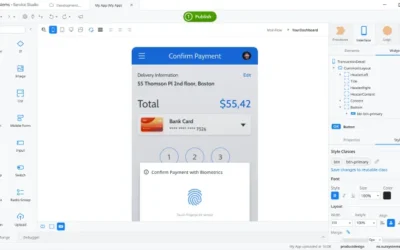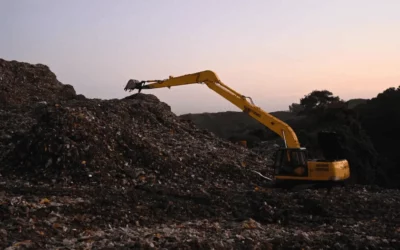 Matthew Gawn
Matthew Gawn
The waste management and recycling sector must collaborate effectively using new technologies to create zero-waste supply loops
The waste resources and recycling sector is currently lagging behind contemporary industries in the supply chain in its use of software technologies, such as integrated waste and recycling operations, ERP and analytics, which provide accuracy, speed, operational efficiency and automation. While this lack of technological development is holding back the industry’s growth, it also represents a significant opportunity for its incumbents.
A study ISB Global conducted with the CIWM last year revealed that 69 percent of UK waste management professionals still carry out over a quarter of their day-to-day transactions manually, which translates to almost £190 million being spent on annual wage costs for manual transactions that could be automated.
In our ongoing analysis of the research, this statistic is also understood to create a negative perception of the use of software – data in processes and transactions in waste management and recycling operations. This is because the industry associates software with low value data administrative tasks, rather than high value information management that boosts efficiency gained from automation of process.
There is a huge opportunity for us, as a highly motivated industry, to take the necessary steps to invest in software technologies, become more efficient and drive a digitally focused circular economy.
Make innovation a priority
If we compare the waste resources supply chain to the performance of contemporary industries such as manufacturing and distribution, the sector lags behind by several years in software technology use. Bridging this gap is an imperative if we hope to achieve an optimal, zero-waste, digitally driven circular economy.
The waste resources and recycling provider is the focal axis between manufacturing and consumption, returning reusable waste resources to the supply chain. But for the industry to effectively perform this function, providers need to invest in, connect to, integrate and continually improve information and material flow between actors in the supply loop. This will be incredibly challenging with outdated, separate and legacy software applications.
Adopting advanced, integrated software that disrupts the industry norm of manual processes will drive greater innovation, productivity and cost savings, resulting in the improved flow of materials and information. This includes connectivity to front office, back office, new and emerging technologies, that facilitate greater auditability on transactions between partners in the supply chain, as well as traceability on products and materials.
The necessary transition involves the development of new circular supply loops − effectively a new supply chain where both data, product and materials flow seamlessly between respective actors. However, all contributors must be on par if this is to work. Doing so will increase value throughout the industry, encourage collaboration and drive innovation. This is especially relevant when relying on waste resource companies to supply quality feedstock into the loop rather than simply remove, burn or bury waste.
Reaching this objective requires investment, planning and collaboration with multiple stakeholders, as well as willingness to adopt new software technologies that automate transactions to facilitate change and enable growth. Instigating this change will improve understanding of the value and benefits of software technologies − a necessary step away from perceptions of software as a data capture tool fit for low value data administration tasks.
Automation will make a significant contribution to progress
To progress, integrated software applications will provide a baseline for additional improvements and innovations to further automate data, processes and transactions. These standards in automation will improve operational efficiency further throughout the supply loop, ensuring easy traceability, auditability and reliable analytics.
Continuous improvement from these established baselines will allow easy integration and building in (not bolting on) of new and emerging technologies like AI. This can aid in the instruction, learning and prediction of large data sets, leading to more widespread automation of tasks, along with improved analytics and intelligence that make operations more profitable.
Planned, longer-term investment in software technologies will then result in more effective segregation, recognition, sorting, recycling and reprocessing of waste resources into partners in secondary markets.
It’s time to invest in technology
As an industry, we need to invest long term in a range of business management technologies, rather than settling for short-term piecemeal upgrades. These technologies give us the foundation to establish better integrated, automated operations and financial cost and profitability management.
Larger technology companies that have been operating in the supply chain for many years can provide software and insights to the waste and recycling industry. The technologies and guidance they can offer allow organisations to follow their own optimal path to integration and automation.
There are also now numerous vendors and live examples of new and emerging technologies that are easy to use and run innovative and affordable ‘pay as you use’ models. Partnering with a provider of these technologies is an imperative and simple way to adopt new innovations, while building an integration value journey for any diverse operation in waste resources and recycling.
Securing the future of the planet
The waste industry is an integral part of the development of the new, sustainable, digitally driven circular economy. But we need to work hard and invest in new and existing business management technologies to integrate, work with, and lead the new supply chains and loops of the near future. The health of our planet and our future prosperity depends upon it.
ISB Global
Waste and Recycling One (WR1) is a software solution that standardises, integrates, simplifies, and automates all your waste and recycling processes, to create efficiencies throughout the business. From waste collection to recycling and selling materials, have instant control and complete visibility across your entire waste management and recycling operations.
The analysis of the ISB Global and CIWM research will be completed and report published very soon. ISB Global has been working to implement these improvements across the industry. New ways of working and delivering Waste & Recycling One in an integration value journey will be published soon. Please register interest https://info.isb-global.com/ciwm.




